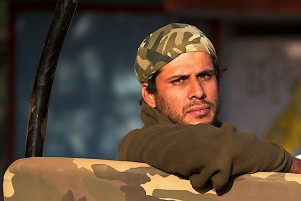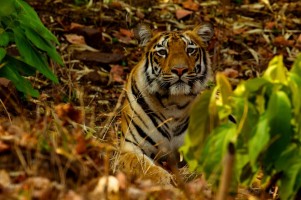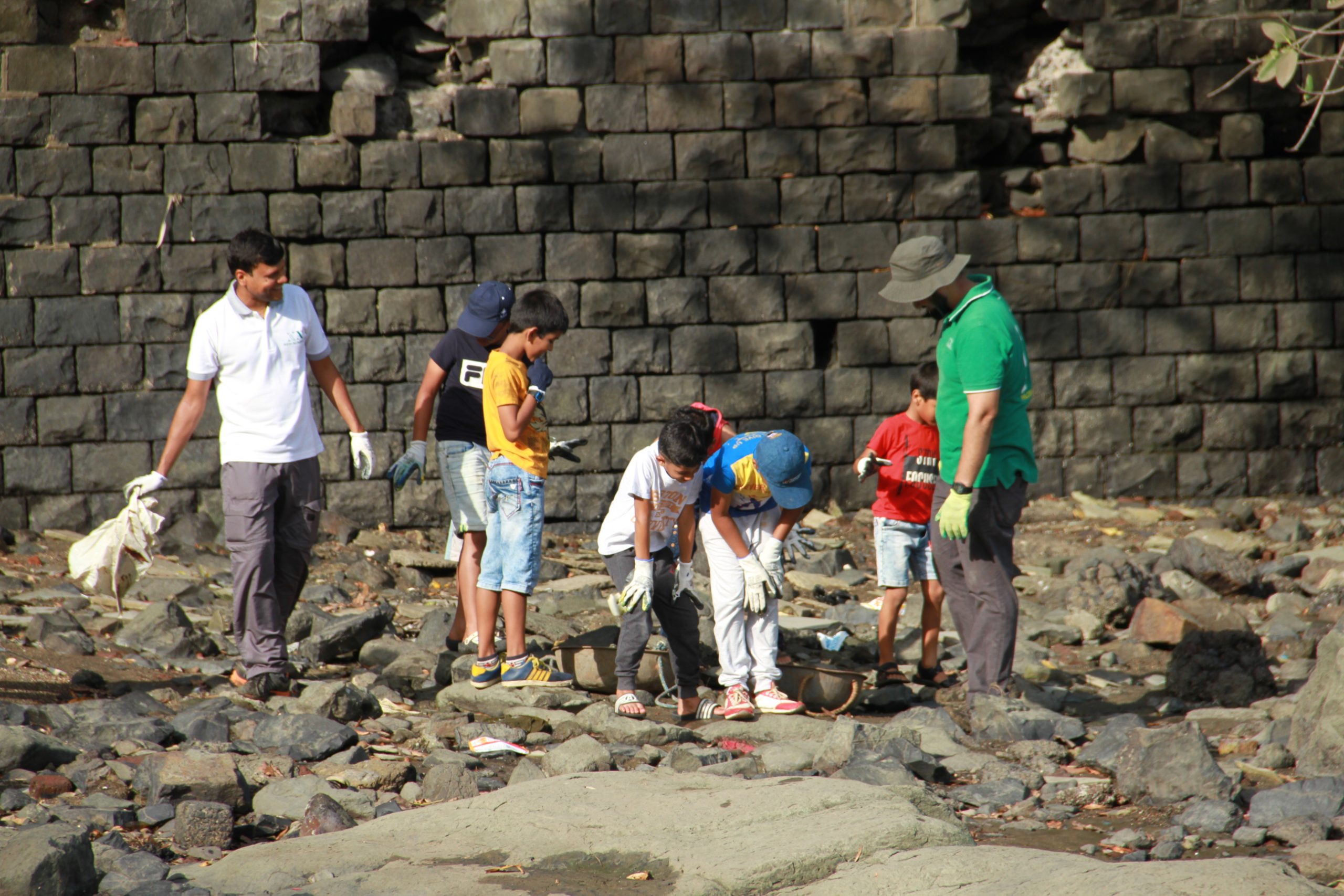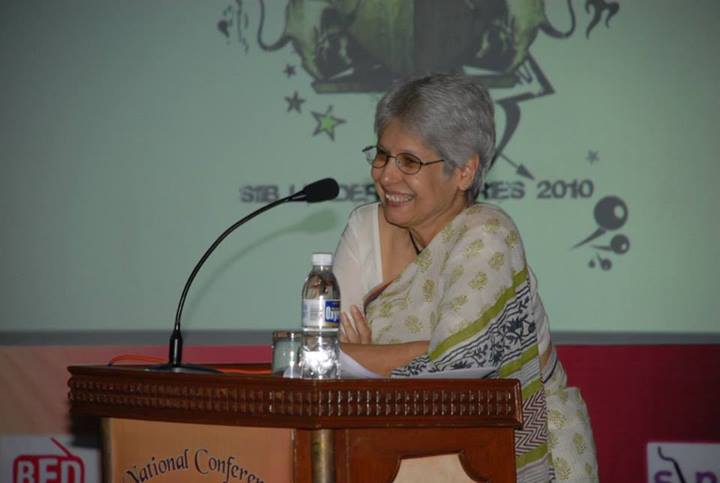Against All Odds: Q&A with Hans Dalal
Article By Manjula Nanavati
 Hans Dalal wears many hats: Wild Life Conservationist, Tiger Tracker, Forest Guard, Poacher Community Rehabilitator, Trekker, Sound Engineer…and he was born with cerebral palsy, a fact that he refers to easily and casually. His speech, though effort-full, is extremely articulate and expressive; his voice strong and passionate even as his tongue hesitates and elongates a word. His balance is slightly unsteady but his actions are purposeful and confident.
Hans Dalal wears many hats: Wild Life Conservationist, Tiger Tracker, Forest Guard, Poacher Community Rehabilitator, Trekker, Sound Engineer…and he was born with cerebral palsy, a fact that he refers to easily and casually. His speech, though effort-full, is extremely articulate and expressive; his voice strong and passionate even as his tongue hesitates and elongates a word. His balance is slightly unsteady but his actions are purposeful and confident.
After his recent presentation at a TEDx Conference in Mumbai, I had the opportunity to investigate the spark that drives him. The man sitting in front of me has bright, alert eyes, a quick and easy smile, and exudes optimism, determination and pluck. He describes himself as “an intelligent mind trapped within a stubborn body.” Here are excerpts from our conversation.
The Acropolitan (TA): Tell us about your journey so far.
Hans: I was born with cerebral palsy. After school and on weekends my mother would take me for physiotherapy, occupational therapy, and speech therapy. I couldn’t walk or talk till I was nearly six, but I went to a mainstream school and my parents worked hard at giving me as normal a childhood as possible. But I was never allowed to go on school field trips. My teachers thought it was too much of a responsibility. However, my uncle would take me fishing, into the mountains and jungles. So I grew up very close to nature.
I was always fond of music and played the keyboard, but my timing was always a little off. I realized that if I wanted to be part of the music industry, it would have to be in sound engineering.
So I went to Australia to qualify, came back, and worked with a sound studio for two years. Then I ran my own recoding studio for 5 years doing ads, voice-overs, and producing music albums. I was comfortable and what you might call happy.
In 2007, on a trip to Kanha, I saw my very first tiger. It was just 5 seconds. But something inside me took an abrupt u-turn. Something within my soul turned upside down.
TA: Or perhaps the right way up?
Hans: Well, retrospectively speaking, yes. I came back to Bombay and began researching everything I could about these majestic creatures: why were their numbers steadily dwindling? Within a year, I closed down my recording studio and started volunteering at an NGO called TIGER WATCH in Ranthambore. Two years later my wife and I set up PROWL, an NGO dedicated to the Preservation Of Wild Landscapes.
One thing that continues to surprise me is that whenever I ask people for support to save the tiger or save the forest, the reaction I get is ‘what’s in it for me?’ We are here because of nature. We are all part of nature, part of the interconnected web of life.
Since the beginning of time man has prayed to the sun, the ocean, the rain and the mountains. This was his way of showing respect to all of Nature and recognition of his place in the web of life. But somewhere down the line we have forgotten this, forgotten who we are, and in our arrogance we have lost respect for our surroundings.
Highways and railway tracks are being built through forests. In the Spiti Valley cement companies have blasted away an entire mountain…off the face of the earth! It just doesn’t exist anymore. The consequence: Earlier, the mountain blocked the rain clouds, resulting in rain for the valley below. Now the clouds float past, and there is a drought. Who is responsible for this? We are!
The dam that is slated to be built in Panna will submerge 60% of the Panna Tiger reserve. Tigers will be forced to come closer to the outlying villages as they look for new territory. Conflict will increase. Once a tiger starts killing people he is labeled a man-eater and is shot down or sent to a zoo. But how is it his fault? We destroyed his home. We don’t value other lives. We only value our own. Of all the species on earth, man has been the cause of the most destruction to the planet.
TA: It must have taken a lot of courage to follow your dream.
Hans: No, not really. People get bogged down with societal pressure, family pressure, and peer pressure. Even in my own experience, while part of my family is very supportive, some think I’ve completely lost the plot. They think it was stupid to throw away a career and start an NGO.
But if I can’t put my heart and soul into what I’m doing…then why do it? Only when you do something that makes you happy does your heart sing, and you will find the resources to go beyond yourself and your limitations to touch excellence.
TA: It is an unusual quality today to use happiness as a barometer for a successful life, instead of money.
Hans: Your brain will always vacillate between two states: ‘Do it.’ or ‘Don’t do it.’ Intellectually you can weigh the pros & cons of every decision endlessly. But your heart always knows. So don’t allow your mind to confuse you. Follow your heart; listen to your deepest feelings. At first, what you hear might seem tough to do. But when you take the leap you realize that in spite of fatigue and discomfort, you are happier. Most people are scared to take steps down the “road less travelled” because of the comfort of where they are. But being comfortable and being happy are two extremely different things. We should not confuse one for the other.
TA: Tell us about the challenges you have faced?
Hans: Everybody faces challenges in life; you just have to find a way around them. I cant cross a stream by jumping over it. So I take off my shoes and socks and wade across. It’s just another way, a more suitable way for me. It takes me 5 hours to complete a trek that the team completes in 4. But I choose to think that I have had an hour more to enjoy the experience.
However, It is disheartening to see other people’s reaction to those of us who are different. Because my co-ordination is affected, I walk funny, and I come across as drunk. In crowded places people stop to stare at me. At airports mothers pull their little children away. I get questioned and stopped at malls, movie theatres, and nightclubs.
What people need to understand is that, if I need your help I will ask for it. Constantly offering me a wheelchair at airports is not being ‘nice’. It is a put down. I would like to be treated normally. And most often it is ‘normal’ people that actually make the handicapped feel ‘handicapped.’ But the real fact of the matter is that they don’t know any better. Everybody lives in a bubble and every bubble is uniquely different. Understanding that is the challenge.
TA: The kind of empathy you bring to all your interactions is truly amazing; especially the generosity with which you treat the poachers, a community that is condemned and vilified and been given criminal status by the government.
Hans: They are just like you and me. I hung out with them, I chilled with them, ate with them, and talked to them. Let me give you some history. Ranthambore was the private hunting ground of the Maharaja of Jaipur who fled into the jungle with his hunters and courtiers when the Mughals attacked. Over time some of them settled there with their families and as skilled hunters they managed a good life. After independence, when the Indian Government decided to make these forests into reserves, and poaching became illegal, these people were given a piece of land outside the jungle, and forbidden to go back. But no one taught them how to cultivate the land or how to till the soil. For generations, they had made their living as hunters and they had no other skills to support themselves. In hard times, they would slip into the jungle to hunt deer or bison, depleting the population of prey. As a consequence, a woman collecting firewood in the forest might be killed by a tiger. It’s a vicious cycle. But it can be stopped.
TA: How do you hope to make a difference?
Hans: We work in Tadoba, Pench, Ranthambore, Corbett, and the Sunderbans; most of the Tiger Reserves in India. We work to uplift local communities and reduce their dependence on the forest. This includes conservation education, poacher rehabilitation and identifying alternate employment opportunities; e.g. hotel and tourism industries, as nature guides, or as auto mechanics. We also support the Forest Department and work closely with the Forest Guards, training and helping in camera trapping, tracking, and providing first aid. In the future we would like to set up schools and provide mentoring programs for the children, to widen their horizons.
There’s so much to do. In the field, I’m up at 4.30 am, out trekking till 6pm, 12 kilometers a day, sharing a room and one toilet with sometimes 30 forest guards, but every moment is a joy.
TA: What is your advice to us on how to bring about a change of perspective?
Hans: One person at time. Change the thinking of just one person, who will then change one more. Five will change five others, and so on exponentially. All each one of us has to do is to take the responsibility to positively influence just one other person.

Image Credits: Hans Dalal
The entity posting this article assumes the responsibility that images used in this article have the requisite permissionsImage References
Hans Dalal
Permissions required for the publishing of this article have been obtained




What do you think?